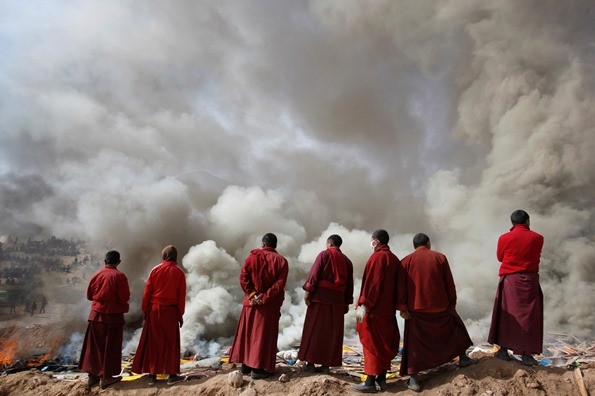Tibet is set to spend 490 million yuan ($75 million) over the next five years in order to repair and protect sites for the traditional Tibetan funeral practice of sky burial, according to local authorities, as reported by the Xinhua News Agency.
Sky burial is a ceremony wherein the dead are fed to predatory birds in place of cremation, with the aim of having the souls reach heaven. It is widely practiced in Tibet and Mongolia.
A total of 156 sky burial sites will benefit from the government funding. The regional government is set to invest 165 million yuan this year on 47 sky burial sites, most of them close to a lamasery.
According to the regional civil affairs department, each site will be assigned a maximum of 5 million yuan.
Wild dogs, bumpy roads, burial waste and an overall lack of proper facilities are affecting the practice of sky burial, according to Xu Jiali, deputy head of the regional civil affairs department who was part of the preliminary investigation that involved visiting 60 sky burial sites.
The funding will be used to construct roads, fences, reception rooms, mortuaries and furnaces for the burning of waste, said Xu, who added that authorities are also thinking about creating legislation for sky burials.
"The government is committed to protecting this tradition," said Dachung, an academic at Tibet Autonomous Regional Academy of Social Sciences.
One of the first recipients of the program is Pawo Samtenling Nunnery, which was built around 400 years ago. It is expected to be a model for the protection project, according to Champa Drolkar, a principal nun.
The nunnery has a fenced-off enclosure to house 100 vultures, and two dedicated rooms for mourners to rest and to house bodies awaiting sky burial. Also installed was a waste storage tank for the burial site.
"A fence alone is not enough to prevent the wild dogs from entering the site," said Sonam Rigzin, head of the civil affair bureau of Shannan City.
According to Champa Drolkar, at least one body is interred each day, sometimes three or four in one day.



























